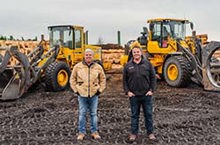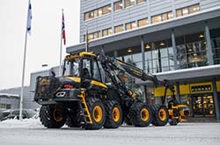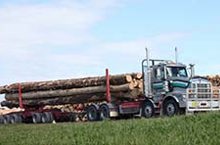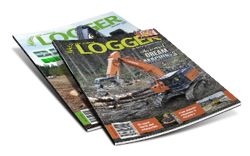
A New Zealand-first study highlights Scion’s work to improve propagation and increase the production of indigenous species in nurseries. The study investigates the impact of container grade size on the survival and field performance of 12 key native species – to better understand the link between containers and post-planting seedling survival and growth performance.
Scion raises seedlings from the 12 native species in different container sizes, testing how they performed in good or poor-quality sites. Scion collaborated with Te Uru Rākau - New Zealand Forest Service, Minginui Nursery, CNI Iwi land Management, the Tumunui Land Trust, Timberlands, Rotorua Lakes Council and the Tipu Waiariki Charitable Trust (Tipu Wai), which provided the sites and helped with preparation and planting.
Industry-standard pots were compared with other, smaller containers such as 7cm and 8cm paper Ellepots and forestry-grade pots. The effect of differences in length of time, type of container and tree spacing were monitored to determine the impact on survival rates and tree growth. Programme lead, David Siqueira, says results showed high-quality sites and larger container systems tended to promote higher survival and faster early growth.
“Some species, such as Leptospermum scoparium (manuka), survived and grew well (>75%), even when raised in small containers, while others such as Sophora microphylla (kowhai) had very low survival rates (< 25%) even when raised in revegetation container grade sizes,” he says.
Other species such as Aristotelia serrata (wineberry), Cordyline australis (cabbage tree), Plagianthus regius (ribbonwood) and Podocarpus totara appeared to depend more on site quality.
“The results show the importance of aligning the choice of container grade size to the needs of individual species. Nursery container systems for raising New Zealand native plants should be chosen based on the biology of the species, nursery management practices, quality of the planting site and a balance between cost and benefit for each situation.”
Nurseries have traditionally used large containers to successfully establish native species, but this is labour-intensive at the planting stage and limits the rate of establishment. Seedlings raised in larger containers can suffer greater transplantation shock, which hinders post-planting survival and growth performance.
“The conventional approach of sowing native seed, setting out and then growing in containers takes 12-36 months, adding significantly to native tree establishment costs over typical New Zealand-grown exotic forest trees,” he says.
“By building a better understanding of how container size affects native tree growth, we hope this research will result in more plantings of native forests, increasing New Zealand’s biodiversity and contributing to the mitigation of climate change.”
The 12 native species selected for the research were:
- Aristotelia serrata (wineberry/makomako)
- Coprosma grandifolia (kanono/raurēkau
- Coprosma robusta (karamu)
- Cordyline australis (cabbage tree/tī kōuka)
- Dodonaea viscosa (hopbush/ake ake)
- Hoheria angustifolia (narrow-leaved lacebark/houhere)
- Kunzea ericoides (kānuka)
- Leptospermum scoparium (mānuka)
- Melicytus ramiflorus (whiteywood/mahoe)
- Plagianthus regius (ribbonwood/mānatu)
- Podocarpus totara (tōtara)
- Sophora microphylla (small-leaved kōwhai)









